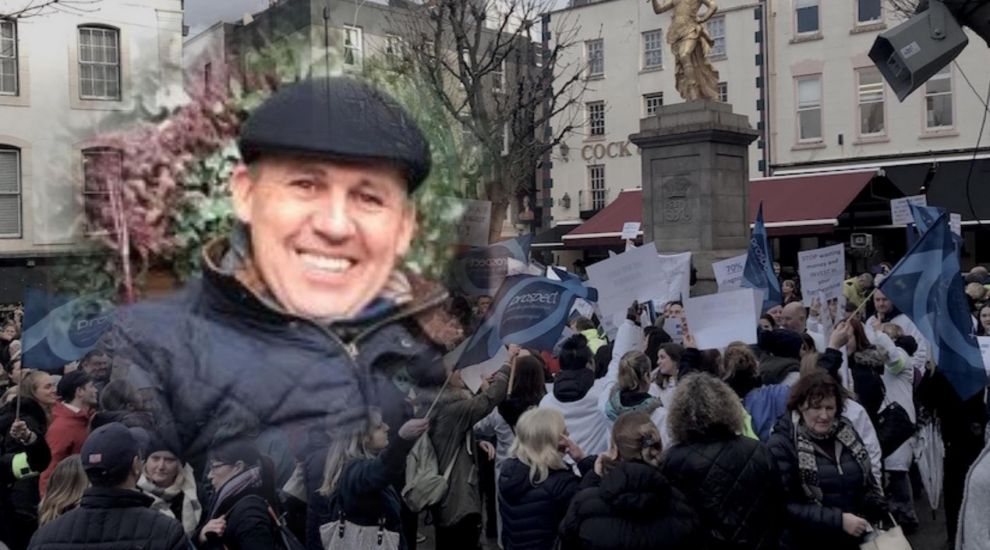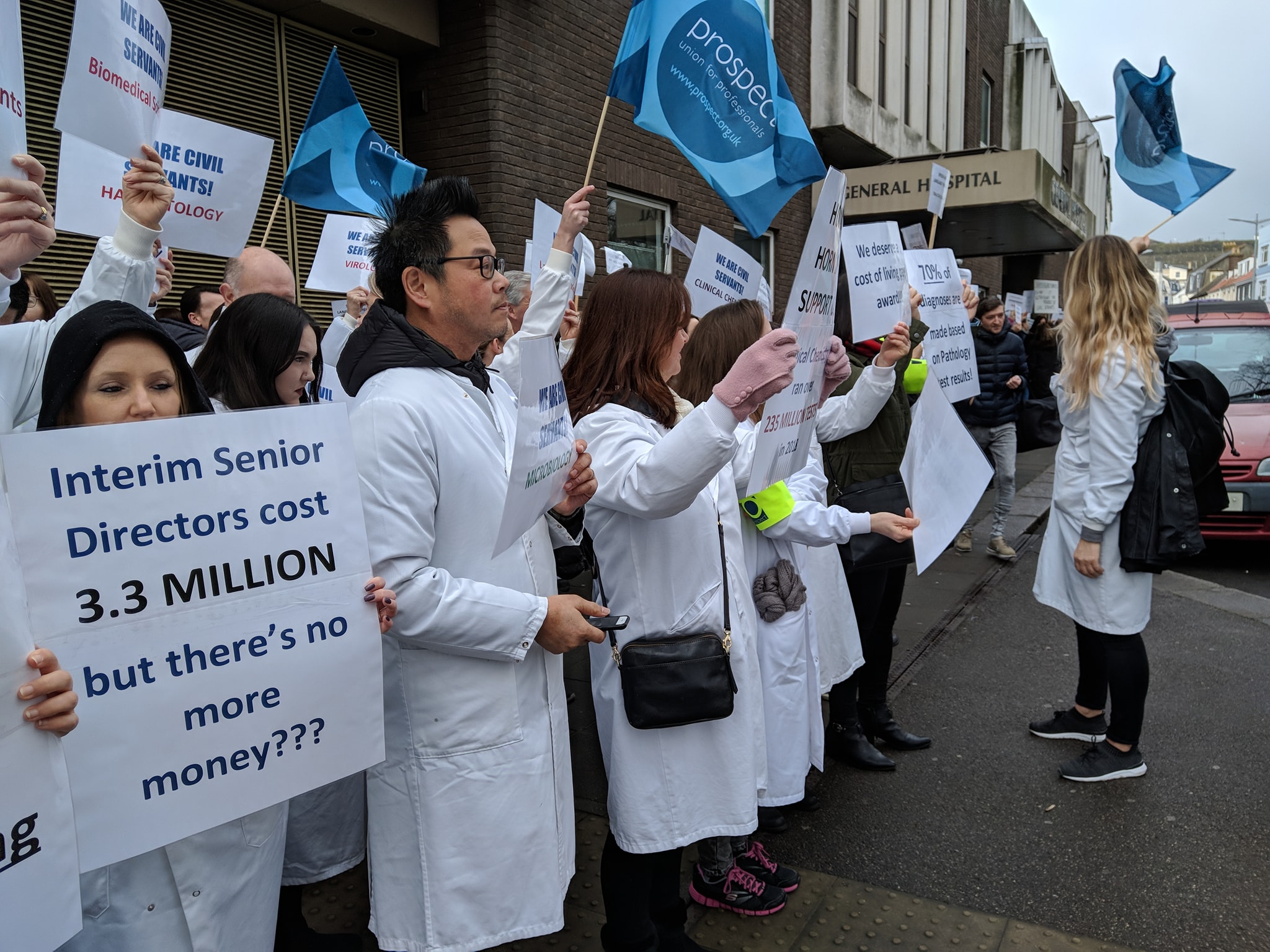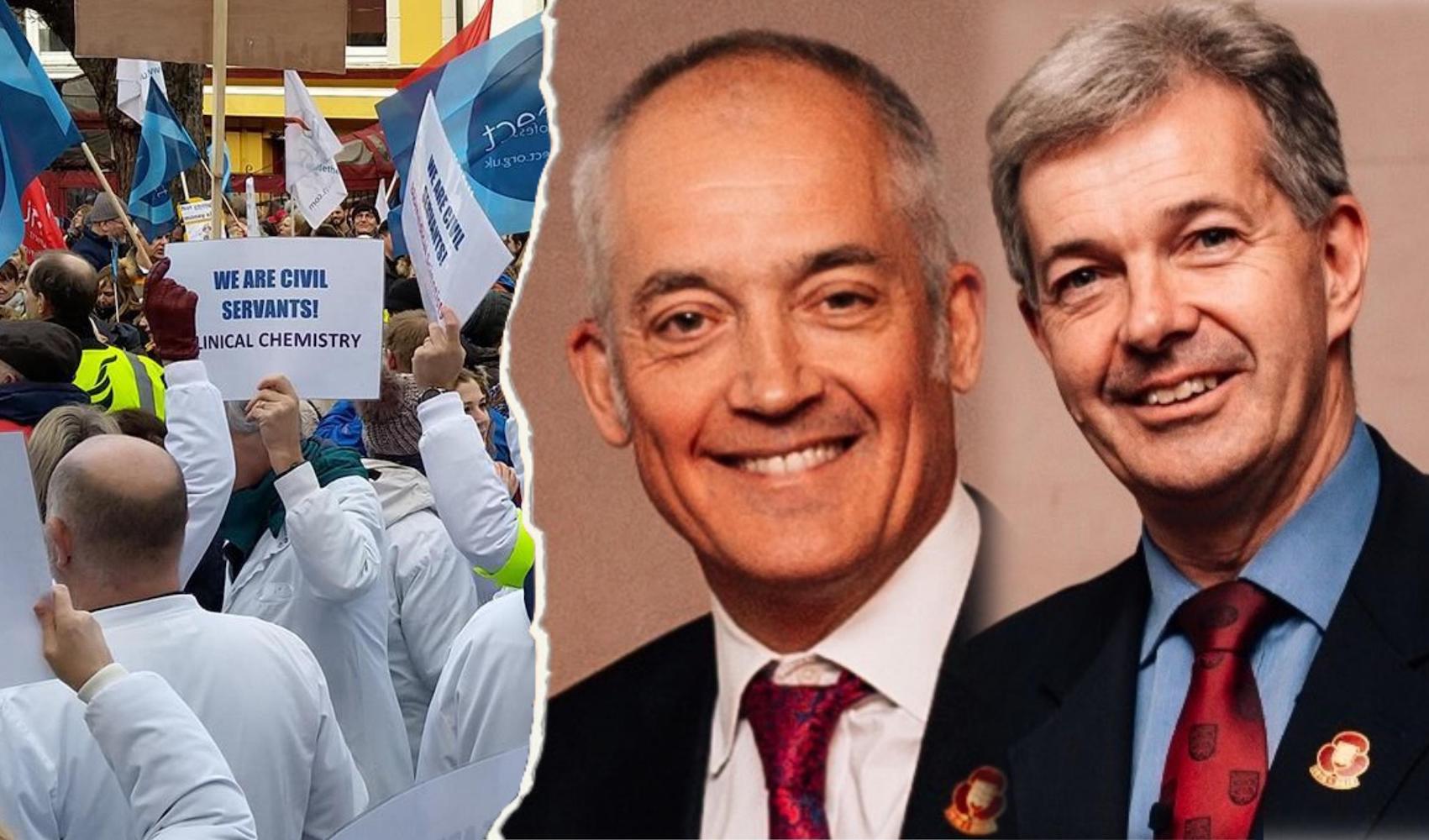

He might have held roles at the top end of businesses, but Andy Jehan says he has never forgotten his trade union roots.
With a keen interest in employer-employee relationships as a result, he's been keeping a close eye on the current public sector pay dispute, which this week exploded into widespread strike action.
With both camps - workers, who want wage increases in line with rises in the cost of living, and the government, which says "there is no more money" - holding firm, however, the Express columnist muses whether it's time to try a new approach to resolve the deadlock...
“I have been watching the ongoing “dispute” between States workers and their employers with a great deal of interest.
Video: Civil servants congregate in the Royal Square in protest of the deadlocked pay negotiations.
As a young man I was a proud trade union activist, and have to say some of the best training I received in my career was on union courses in the early 80s.
In my experience, people don’t take industrial action lightly. The worst week of my life was being on strike – not knowing if I would be able to keep the house I had just purchased.
I am pleased to say that most unions have progressed from the ‘them and us’ attitude that used to prevail, with much more thought given to ‘win-win’ negotiation rather than trying to get one over on the ‘opposition’.
It didn’t take me long to realise that, whilst being a union rep may make you popular, it was never going to help get my mortgage paid quicker, so I changed course and embarked on a career in management. But I never forgot where I had come from, including my trade union roots.

Pictured: Biomedical scientists were among those striking.
Change is the one certainty in life, and sometimes you are in control and other times events out of your control can impact on you at very short notice.
The people who normally know most about their job are the people doing it. Often they will have sound ideas on how things could be improved if only someone would listen. In the 90s, the TUC promoted Partnership working, where employers and employee bodies signed up to agreed processes and protocol. A problem shared is a problem halved, as they say.
Along with the benefits of Partnership working comes a responsibility for the leaders of both sides: a genuine commitment to work together, a commitment to communicate a consistent message, and a commitment to work together to find solutions to the problems of the day.
I was privileged to experience Partnership working as both a Senior Manager and a Director. Trust was key to success, and finding sustainable solutions to problems for both employers and employees was the common goal.

Pictured: States CEO Charlie Parker and the Chief Minister met with union reps on Tuesday.
Observing the current dispute, I have been impressed, in the main, by the professionalism of the local union officials, hard-working individuals who just want an opportunity to put their case across.
I was encouraged to finally read something from the Chief Minister on the subject, which was no doubt prompted by Senator Moore’s invitation to a Scrutiny hearing.
He is absolutely right to highlight the total package on offer to employees including the 16% pension contributions. However, he didn’t mention the lengthy delay in closing the Final Salary pension scheme and or the cost of this.
If there is no additional money, what is there? Are there any opportunities to consolidate allowances? What is the cost to the States of the generous sick pay benefits? Could this be changed and some of this money be used to help get an agreement?

Pictured: States workers have previously been told "there is no more money" to fund pay rises.
Open discussions should include questions such as, ‘What services should the government provide?’ The cost of our public sector is far greater than our neighbours in Guernsey, but we currently offer a lot more. What ideas do the staff have (other than reducing the salaries at the top) that could deliver real savings?
Charlie Parker needs all the help he can get to modernise the public services. We as islanders and taxpayers need a public service that is efficient, with motivated employees.
Proper engagement with trade unions should be seen as an opportunity to make real progress. This may include investing some of the savings into pay, but if the staff can see an opportunity to help make savings in the knowledge that there could also be benefits, then surely it’s worth exploring?
One thing I have learnt in almost 40 years of sitting on both sides of the negotiating table is that entrenched views never win in the long run. You may win the odd battle, but you won’t win the war.

Pictured: Government and States employees have more chance of success if they work together in a partnership approach, Andy believes.
It is vital that all parties sit down around the table and allow each other the opportunity to be heard. They need to find a workable solution and I think they could do a lot worse than subscribing to a Partnership approach.
I look forward to watching how the current dispute is resolved and I am hopeful that we can get on and tackle some of the real issues facing the public services.”
The views expressed in this piece are those of the author and not Bailiwick Express.
Comments
Comments on this story express the views of the commentator only, not Bailiwick Publishing. We are unable to guarantee the accuracy of any of those comments.